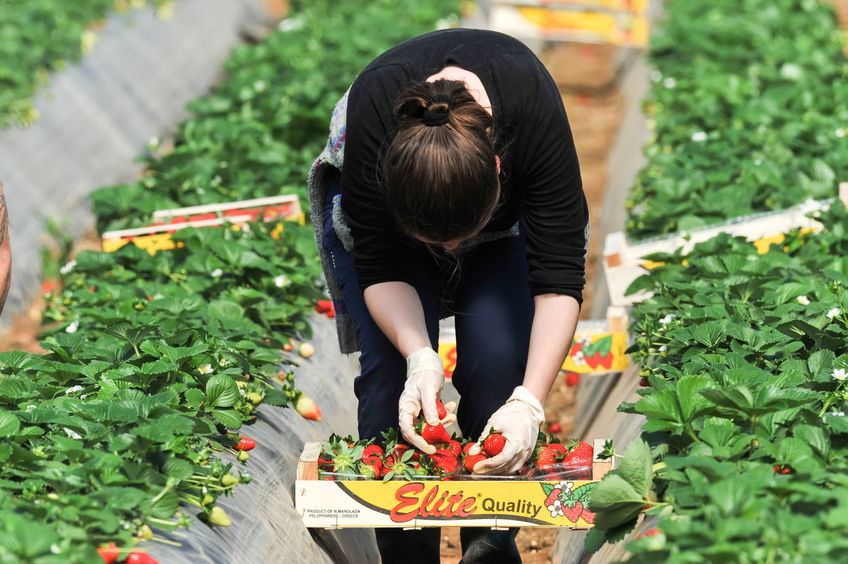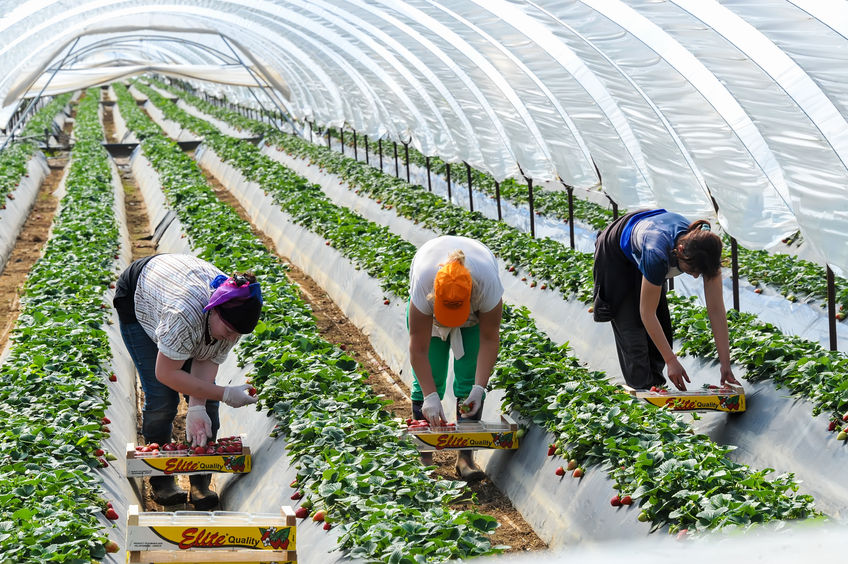
Freedom of movement between the UK and the European Union will end by March 2019, Immigration Minister Brandon Lewis has said.
Mr Lewis said a new immigration system will be put in place at that time, despite talk of freedom of movement continuing years after the UK having left.
"Free movement of labour ends when we leave the European Union in spring 2019," Mr Lewis told BBC Radio 4's Today programme.
In an article in the Financial Times, Interior Minister Amber Rudd said: "Once we have left the EU, this government will apply its own immigration rules and requirements that will meet the needs of UK businesses, but also of wider society.
"I also want to reassure businesses and EU nationals that we will ensure there is no 'cliff edge' once we leave the bloc," Ms Rudd added.
Immigration was one of the central topics of last year's EU referendum campaign, and ministers have promised to "take back control" of the UK's borders as they negotiate Brexit.
For the farming industry, it is one of the more serious issues which will affect their businesses.
Price of strawberries
Farmers often rely on migrant labour from the EU to work on-farm. For example, to help pick crops in the field.
One fear which was brought to the attention of the media was the price of British strawberries if the UK lacked migrant labour to pick them.

The price of British strawberries could rise by 50% if seasonal labour from the EU goes down due to Brexit, MPs heard earlier this year.
Neil Parish, former chair of the environment, food and rural affairs select committee, said without seasonal farm workers British fruit and veg 'will probably rot' in the fields.
A damning report by farm business consultants Andersons predicted that more growers will go out of business.
About 80,000 seasonal workers a year pick and process British fruit and veg. Industry body British Summer Fruits said labour shortages are now the worst seen since 2004.
It led Ukip to offer a solution which emphasised that British students could provide labour for farms to help fill in the migrant labour gap.
Reduction in availability
Rural organisation the CLA said restricting access to migrant labour would affect the 'profitability, efficiency and viability' of rural businesses.
44% of CLA members surveyed said they had experienced a reduction in the availability of migrant labour over the past year.
Almost 90% of respondents tried to recruit locally but the majority found it difficult to fill positions with British workers.
One in ten CLA members employ migrant workers in managerial positions, with almost a quarter of respondents saying they worked in skilled roles, such as training horses or operating complex machinery.
'Competent workforce'
Last week, a report on food security, from three leading experts, says food could be "seriously undermined" by leaving the EU.
The NFU has thus urged the government to create an immigration policy to offer appropriate visas for recruiting seasonal labour overseas.
"It is crucial that the government addresses these concerns immediately to ensure that farming has access to a competent and reliable workforce," said NFU president Meurig Raymond.
"A solution, such as a suite of visa or permit schemes is urgently needed to avoid losing a critical number of workers that could jeopardise future harvests and food production."
The NFU said they were calling on the government to provide 'urgent clarity' on the status of EU nationals living and working in the UK.
Immigration Minister Brandon Lewis would not confirm details of how the government plans to manage migration after Brexit.
